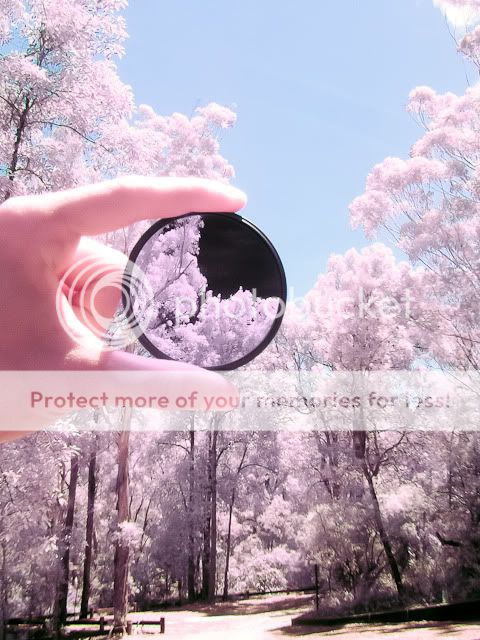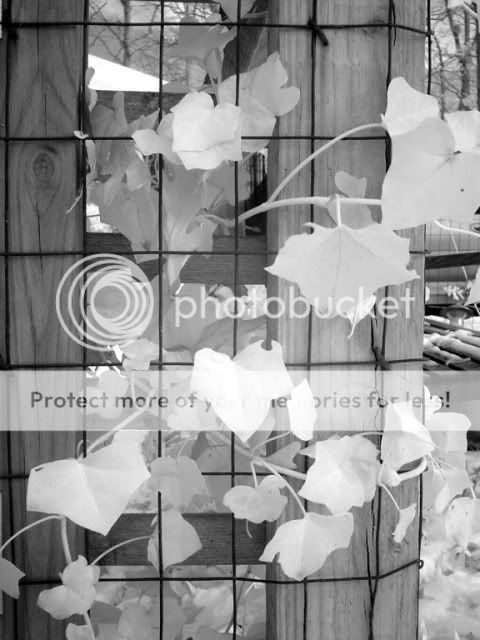Garbz
No longer a newbie, moving up!
- Joined
- Oct 26, 2003
- Messages
- 9,713
- Reaction score
- 203
- Location
- Brisbane, Australia
- Can others edit my Photos
- Photos NOT OK to edit
- Thread Starter 🔹
- #31
Ok so I have it all done and put back together with the film piece between the sensor and glass, but the photos have a purple hue to them. Is this something weird or should that be the case?
Purple is due to the fact that cameras white balance algorithms can only be pushed so far. Some cameras when you use autowhite balance they come out great, but for the most part the trick is to either convert it to black and white, or set the white balance to manual so you can do something with the weird colours that come out.
An easy way to check is to take a photo of the tree compared to the sky. The sky should be darker than it would be in a black and white shot.
To illustrate this here's a shot from the IR modified camera. I am holding a 720nm IR filter up. The picture was shot with autowhitebalance and came out very purpleish. In post processing I've slid the tint slider to 90% green.

If you stuffed up the IR conversion the filter being held up would look completely opaque. Same with a film leader. The other way to check to see how well it worked is to take a photo of someone wearing sunglasses. Most sunglass lenses (not the psycho reflective surferdude style though) are transparent to IR.
My old Nikon point and shoot is about to be cracked open.
Thanks guys.
OMG what have I started.
I hear a disturbance in the force, as if thousands of point and shoots cried out and then ... nothing.

 I love to tinker and this project looks like the best I've seen in a long time. Thanks to all for answering my silly questions. Hope the end result is near. And my new old D70 showed up at the door yesterday. Early Christmas for me!
I love to tinker and this project looks like the best I've seen in a long time. Thanks to all for answering my silly questions. Hope the end result is near. And my new old D70 showed up at the door yesterday. Early Christmas for me!













